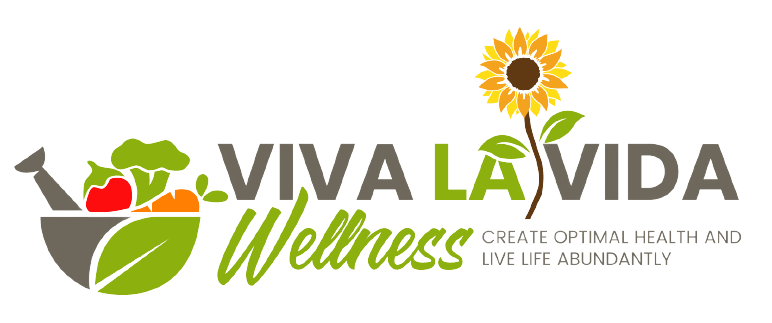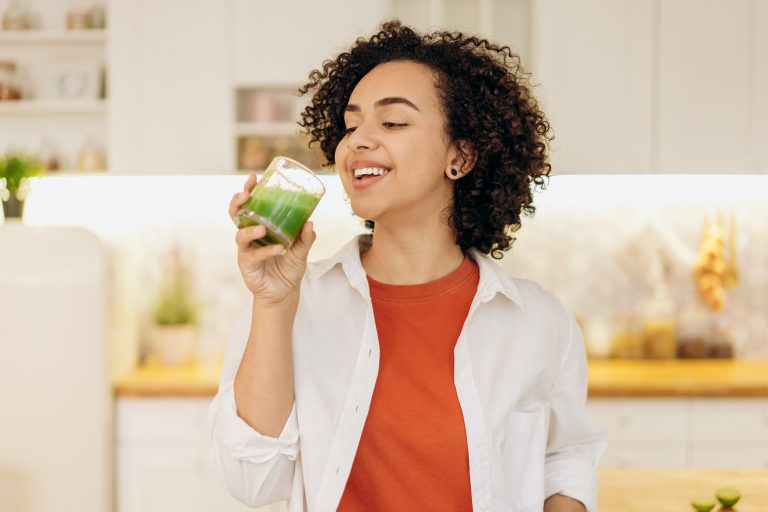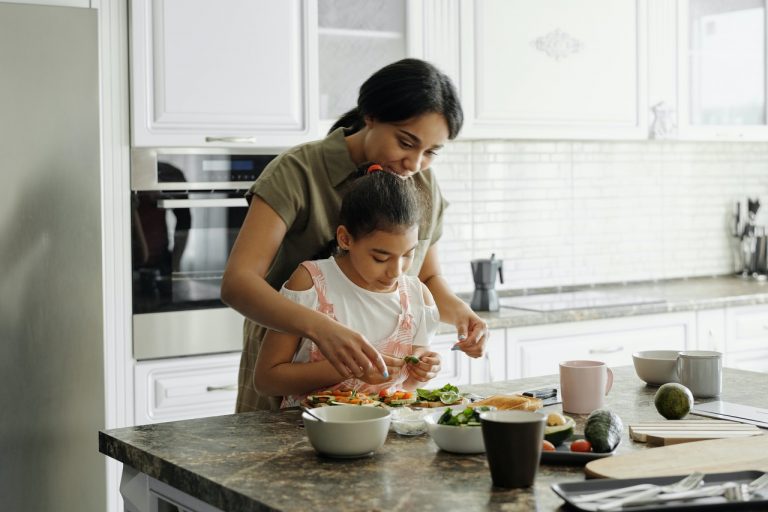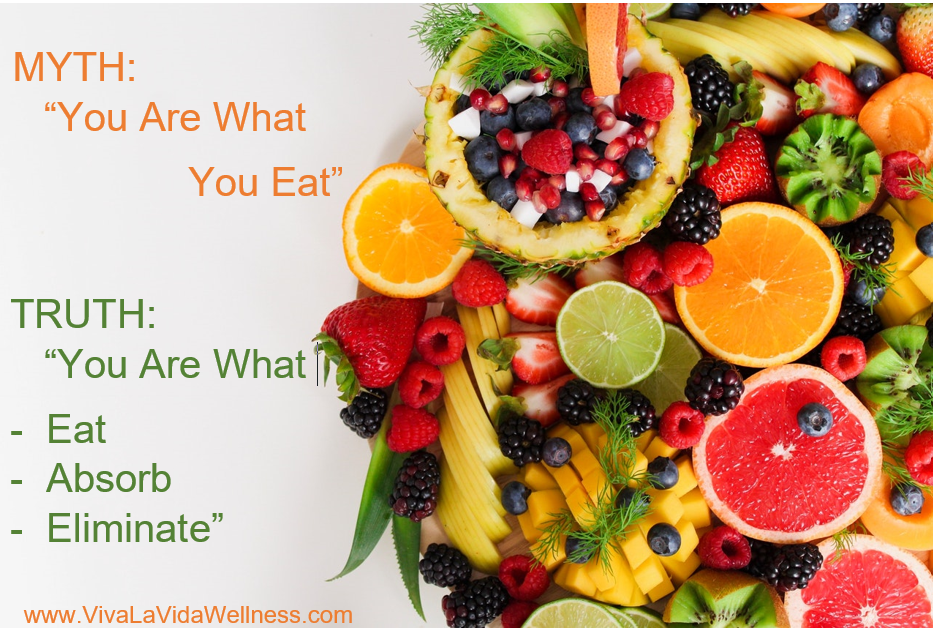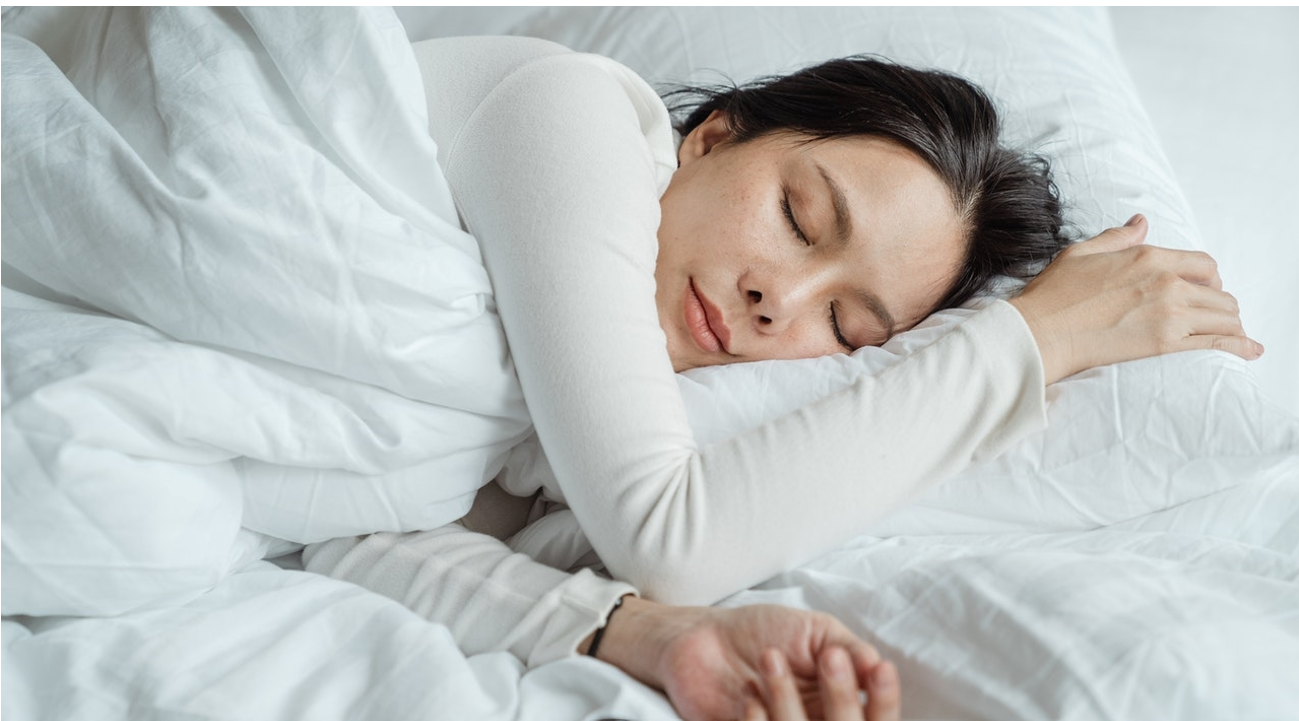The holiday season is said to be the happiest time of the year. However, for many people the reality is different. There is so much going on during the holiday season. It is a time of high activity in a short period of time. So much to do so little time. It is a time of decorations, baking, shopping, cleaning, parties with friends and families, school, work and church activities and the list goes on.

The bar is set high to create a sense of joy or happiness with the things that we do, buy and the activities we attend. In short, we get involved in a heck of a lot of activities with the intention of having personal happiness and sharing happiness with others. But more likely than not, it may cause a sense of overwhelm and anxiety.
In addition, during the holidays we are exposed to a bigger variety of processed, sugary, unhealthy fatty foods and alcoholic beverages. This not only adds unhealthy calories, but it can keep us on a sugar rollercoaster ride. For many people, their main concern is weight gain, but for most people, these roller coaster rides may contribute to moods swings and anxiety. Spikes of blood sugar and drops have been associated with mood swings and anxiety.
Lastly, the hustle and bustle of the holidays may cause some people to skimp on sleep, lose sleep or have poor sleep. Sleep disturbances can also lead to low mood, anxiety and depression. Researchers have found that partial sleep deprivation or insomnia can have a significant effect in mood (1), anxiety (2) and depression (3).

In short, here we have what I call the “trifecta of the holiday overwhelm”,
- high activity
- high sugar intake
- sleep disturbances
All, putting the vulnerable at risk for anxiety. For those who are already suffering form moods swings and anxiety the holiday season can exasperate their condition and for those who are vulnerable this can be a trigger.
Let’s discuss one by one the trifecta of holiday overwhelm as well as the three-prong strategy to creating a sense of holiday joy.
1.High activity –
Strategy: Manage activities
- Be selective and prioritize. Part of the holiday stress is too much into too little time. Too many fun activities or being around too many people can be stressful. Set realistic expectations of the number of activities (shopping, decorating, baking, volunteering, etc.) you are able to be involved in and then prioritize. When it comes to the holidays, less is better
- Plan ahead and be flexible. As your have been selective and prioritized you activates now is time to plan ahead. Keep in mind that “life happens” even during the holidays, so be flexible. If you are feeling overwhelmed and you need to change plans, change plans. If someone forgot to bring the dessert to your holiday party, serve fruit instead. Be flexible. You run out of wrapping paper? No problem, use paper bags from the grocery store and have your kids color them. Be flexible and keep with the flow. This will keep your stress level manageable or keep it from rising.
3. Choose to be grateful. Choose to be grateful however things pan out. You have been selective, prioritized, planned ahead and have been flexible. Lastly, having an attitude of gratefulness gives us a sense of well-being (4). There is plenty of research to show that when it comes to having an attitude, gratitude is the one that wins the prize for creating a sense of well-being in your life.

- Holiday sugar roller coaster ride.
Strategy: Keep blood sugar balanced
Let’s talk first about what I mean by the holiday sugar roller coaster ride. One of the highlights of the holiday season are the holiday foods, desserts, cookies, candy, alcoholic drinks, etc. Unfortunately, these foods tend to be highly processed and high in sugar content which have the potential of creating a sugar rollercoaster ride for those who indiscriminately indulge in them. This is one important factor contributing to the holiday overwhelm that may causes stress, anxiety and depression
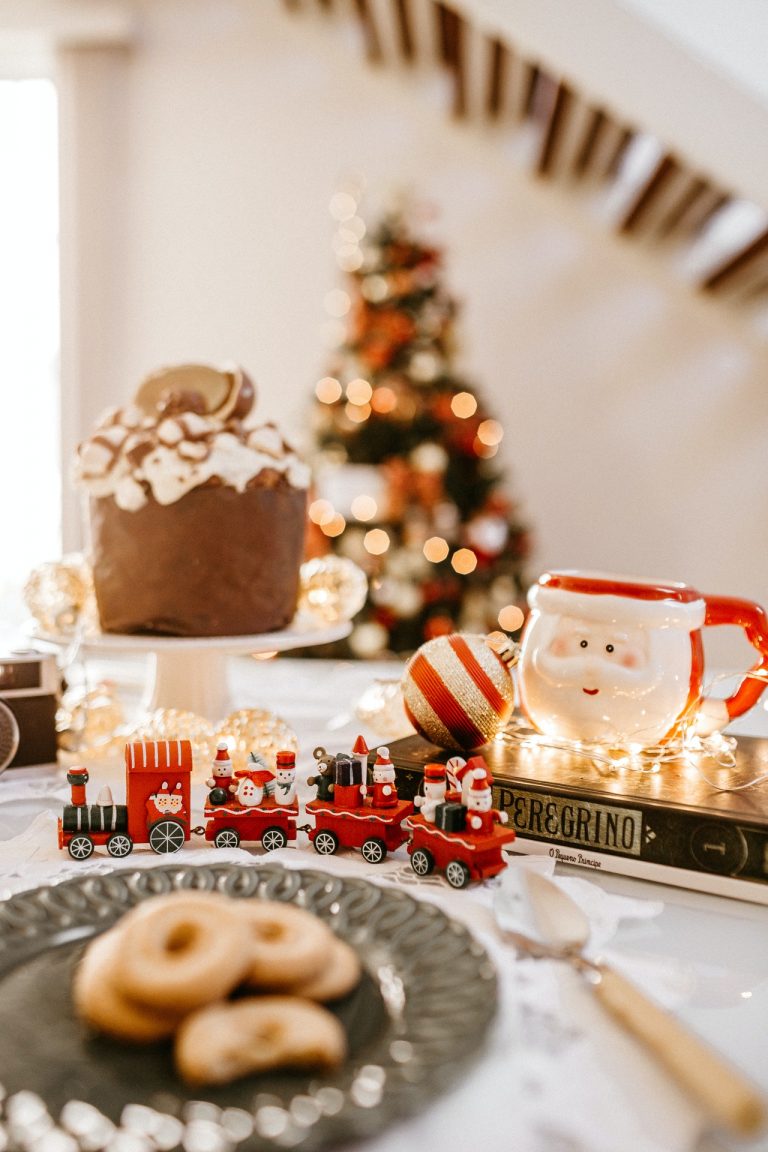
Most people don’t know that these spikes and drops in blood sugar are known to results in energy drops, mood swings, anxiety, brain fog, insomnia, increase inflammation and more. In addition, most of these delicious foods are made with gluten and dairy, two foods that for some vulnerable people can trigger or exasperate their already existing anxiety and depression. As a matter of fact, when I work with clients who suffer from anxiety or depression, I recommend that they eliminate gluten and diary from their diet.
Since this sugar roller coaster ride is a contributing factor in anxiety and mood swings, let’s talk about blood sugar balance. Our body is designed to operate optimally when we have a steady supply of blood glucose. Blood sugar fluctuates normally in healthy range. There are many factors that affect blood glucose, among these are the type of food, quantity, combination, and timing.
In the world of blood glucose regulation, we talk a lot about the glycemic index. The glycemic index is a number from 0 to 100 given to foods that represent the relative rise of blood glucose level after consuming them. Processed foods and sugar rank high in the glycemic index.

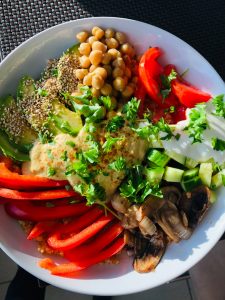
Whereas whole foods like fruits, vegetables, nuts, seeds, whole grains and legumes tend to rank low to medium in the glycemic index. That is because these whole foods also contain fiber, protein, fat, vitamins, and minerals. All important components to help metabolize food and regulate blood sugar.
When we eat cakes, pastas, cookies, and candy, consume sodas and alcohol beverages, we spike our blood sugar. It also gives us a temporary sense of high due to the release of the neurotransmitter dopamine. The spike in blood sugar triggers the pancreas to release insulin. Insulin’s job is to take glucose from the blood stream and deliver it to the cells and store unutilized energy, often resulting in a drastic drop in blood glucose. Drops in glucose decrease the release of GABA, the calming neurotransmitter as well as increases the release of glutamate, a neurotransmitter that in excess is excitatory. In an attempt to bring blood sugar levels back, there is a release of cortisol that stimulates the pancreas to release glucagon in order to bring blood sugar back. This drop of blood sugar becomes a trigger to consume more high glycemic foods and it becomes a roller coaster ride with no end in sight.
During the holiday season, many people find themselves inadvertently in this roller coaster ride, which is known to result in moods swings, anxiety, fatigue, insomnia, irritability, weight gain and so on. Sadly, many people focus on the weight gain aspect of a high sugar, highly processed foods and quickly rationalize that they will get on a diet next year; not realizing that this roller coaster ride is affecting more than weight gain. It is affecting their sense of overwhelm and is a contributing factor to their anxiety and depression.
Spikes and drops of blood sugar are not mainstream talk as factors in mental health and brain health (5,6). The reality is that maintaining blood sugar balance supports healthy moods and cognition. More emphasize should be put in learning how to balance blood sugar as a strategy for eliminating anxiety.
Now that we know how the holiday sugar roller coaster can contribute to our holiday overwhelm, let’s talk about the strategy of keeping our bloods sugar balanced during the holidays.
- Avoid spikes or drop of blood sugar throughout the day by eating a balanced low-glycemic meals and snack. What I mean by “balanced” is making sure in every meal and snack you have a healthy protein, fat and complex carb (For a guide on how to regulate your blood sugar email me at support@vivalavidawellness.com and on the subject line right blood sugar balance and we will send you my eBook on strategies on how to balance blood sugar for healthy mood, balanced hormones and healthy weight).
- Have a balanced low glycemic breakfast like eggs, whole fruit, and yogurt. Avoid cereal, donuts and pastries and fruit juices, this will be the beginning of your roller coaster ride. This is not Disney so don’t go there.
- Focus on the celebration and don’t use it as an excuse to indulge on these foods.
- Before going to a party have a balanced low glycemic snack. This will support you in the choices you make when you get to the party. If you are not hungry you will be stronger in resisting the many cookies and cakes.
- If you are invited to a potluck or similar event, bring your own healthy dish or healthy dessert. That way, if at the party, there are no good choices for you to eat you have your own food.
- Visit with others away from food. Avoid standing or talking around the chips, desserts and high calorie drinks.
- At the party or event focus on visiting with others and not on the food. Remember that the highlight of the occasion is the celebration with your loved ones not the foods itself.
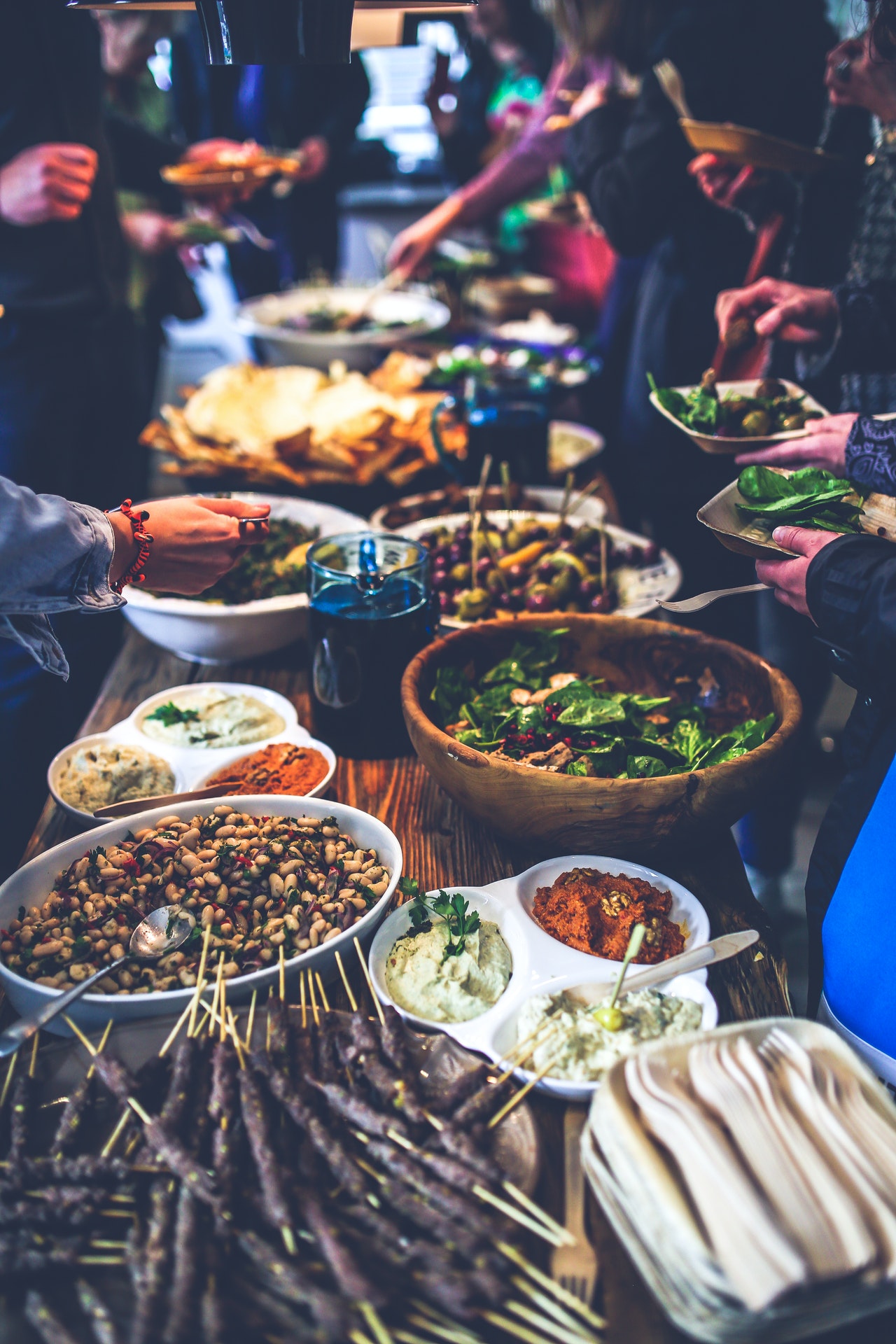
3.Sleep Disturbances
Strategy – prioritize and optimize sleep
One unintended side effect of the hustle and bustle of the holidays is sleep disturbance. I am using this term loosely to mean that our normal sleep pattern gets disturbed; anything form quantity to quality to postsleep alertness. It could be that we stay up watching Christmas movies, wrapping gifts, partying or stay up working to make more money to buy gifts, etc. Some may sleep less hours or sleep late. Other due to the stress of the holidays may not be able to fall asleep or stay asleep. Missing out on sleep once in a while may not have a long-lasting effect but during the holidays this may become more frequent, and this adds to your stress bucket.
When it comes to anxiety and sleep, the effects are bi-directional (5). That is, anxiety can have a negative effect on our ability to sleep and lack of sleep can result in anxiety. Sleep has many functions such as recovery, healing or repair, consolidation of memories, detoxification. It supports homeostasis, that is, it helps to bring balance back to our body. Particularly when it comes to mental health such as anxiety, sleep is of prime importance
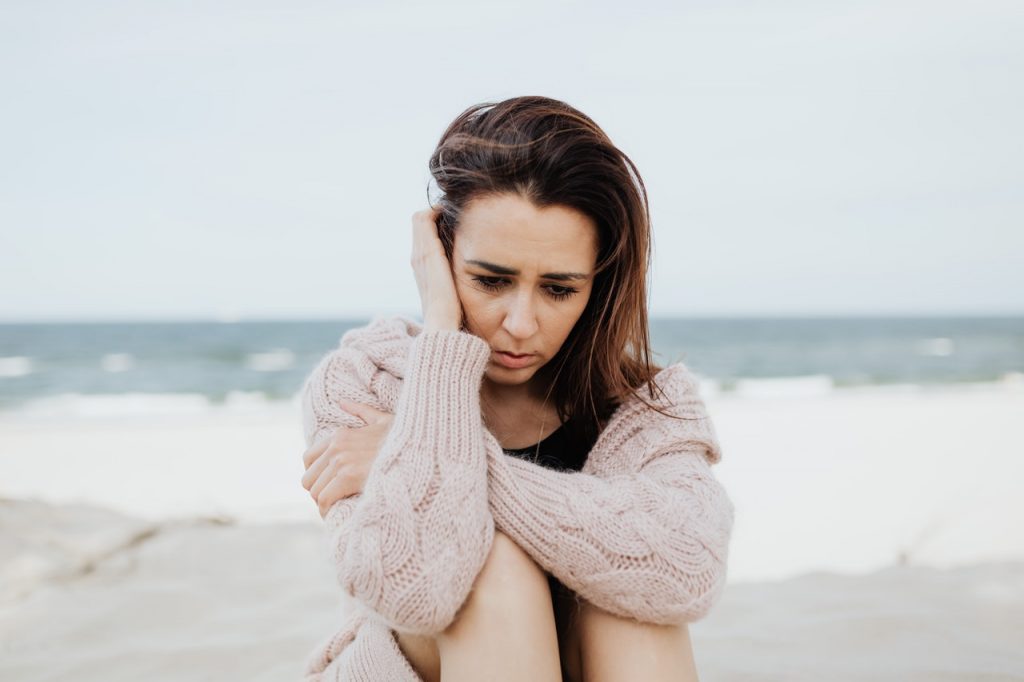
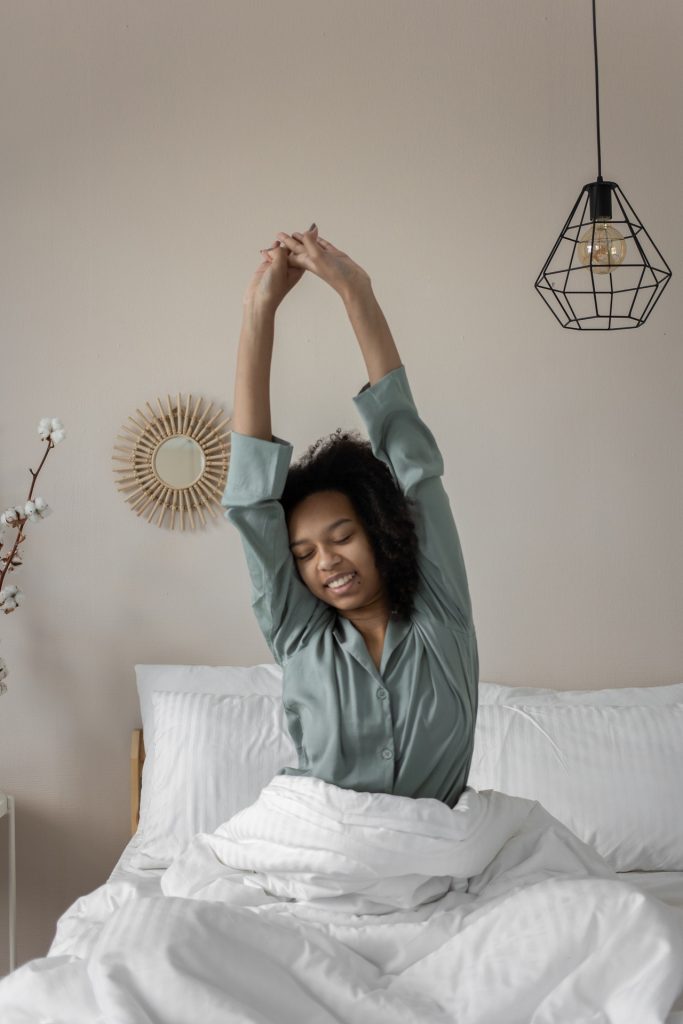
One strategy to help avoid the holiday overwhelmed is to recognize the importance of sleep for your mental health and prioritize sleep in order to keep anxiety at bay.
- Be selective on the activities and the number of activities that would lend themselves to skimping on sleep. For example, you may want to schedule your holiday party an hour early, or maybe you can choose to finish picking up the mess the next morning. You may choose to take 4 days to do grift wrapping instead of staying up all night to wrap your gifts or choose to leave the party 30 minutes early so you can go to bed at a good time, watch a holiday movie on several days instead of making it a Christmas movie marathon.
2. Optimize sleep. Strive to wind down 1 hours before your target sleep time, if you have a busy day the next day, make a list. If you are worried about something, write it down and choose to pick up that concern the next day, better yet pray and leave it to rest. For good quality sleep , keep your blood sugar balanced through the day and stop eating 3 hours before bed. That will help you avoid waking up in the middle of the night feeling anxious or agitated because your blood sugar dropped. Sleep in a darken room or use a face mask.
In conclusion, holiday overwhelm is multifactorial but there are 3 modifiable factors that we may address during this season in order to avoid it and create a sense of holiday joy. Instead of falling for high expectations lets manage them, instead of riding the holiday sugar roller coaster ride strive to keep your blood glucose balanced and instead of skimping on sleep prioritize it. These strategies will support your mental health and mood.

References
- Michelle A Short, , Mia Louca, Sleep deprivation leads to mood deficits in healthy adolescents, Sleep Med, 2015 Aug;16(8):987-93
- Dag Neckelmann , Arnstein Mykletun, Alv A Dahl, Chronic insomnia as a risk factor for developing anxiety and depression, Sleep, 2007 Jul;30(7):873-80
- N Breslau 1 , T Roth, L Rosenthal, P Andreski, Sleep disturbance and psychiatric disorders: a longitudinal epidemiological study of young adults, Biol Psychiatry, 1996 Mar 15;39(6):411-8.
- Emmons, R., McCullough, M., Counting Blessings Versus Burdens: An Experimental Investigation of Gratitude and Subjective Well-Being in Daily Life, Journal of Personality and Social Psychology, 2003, Vol. 84, No. 2, 377-389.
- Monique Aucoin * and Sukriti Bhardwaj, Generalized Anxiety Disorder and Hypoglycemia Symptoms Improved with Diet Modification, Case Rep Psychiatry. 2016
- Patrick J Lustman 1 , Ray E Clouse, Depression in diabetic patients: the relationship between mood and glycemic control, J Diabetes Complications, Mar-Apr 2005;19(2):113-22
- J. Peltz, R. Rogge, C Pugach, K. Strang, Bidirectional Associations Between Sleep and Anxiety Symptoms in Emerging Adults in a Residential College Setting, Sage Journal, November 4, 2017.
